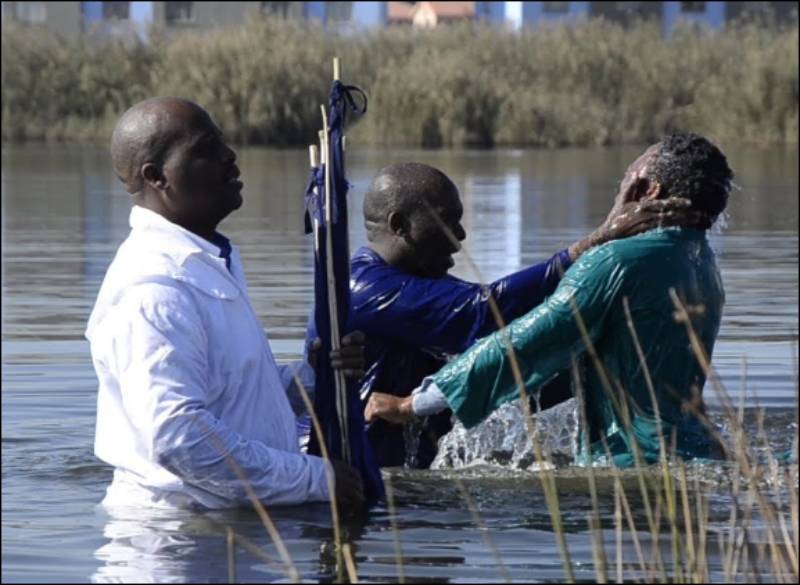×
The Standard e-Paper
Fearless, Trusted News

Congregants wade into the water of Soweto Township’s Fleurhof dam. (Reuters)
A group of congregants dressed in long robes wade into the water of Soweto township’s Fleurhof dam, some immersing their entire bodies, while their pastors loudly sing prayers and blessings.